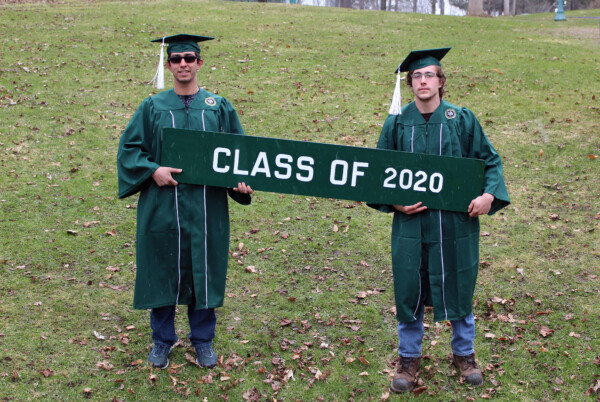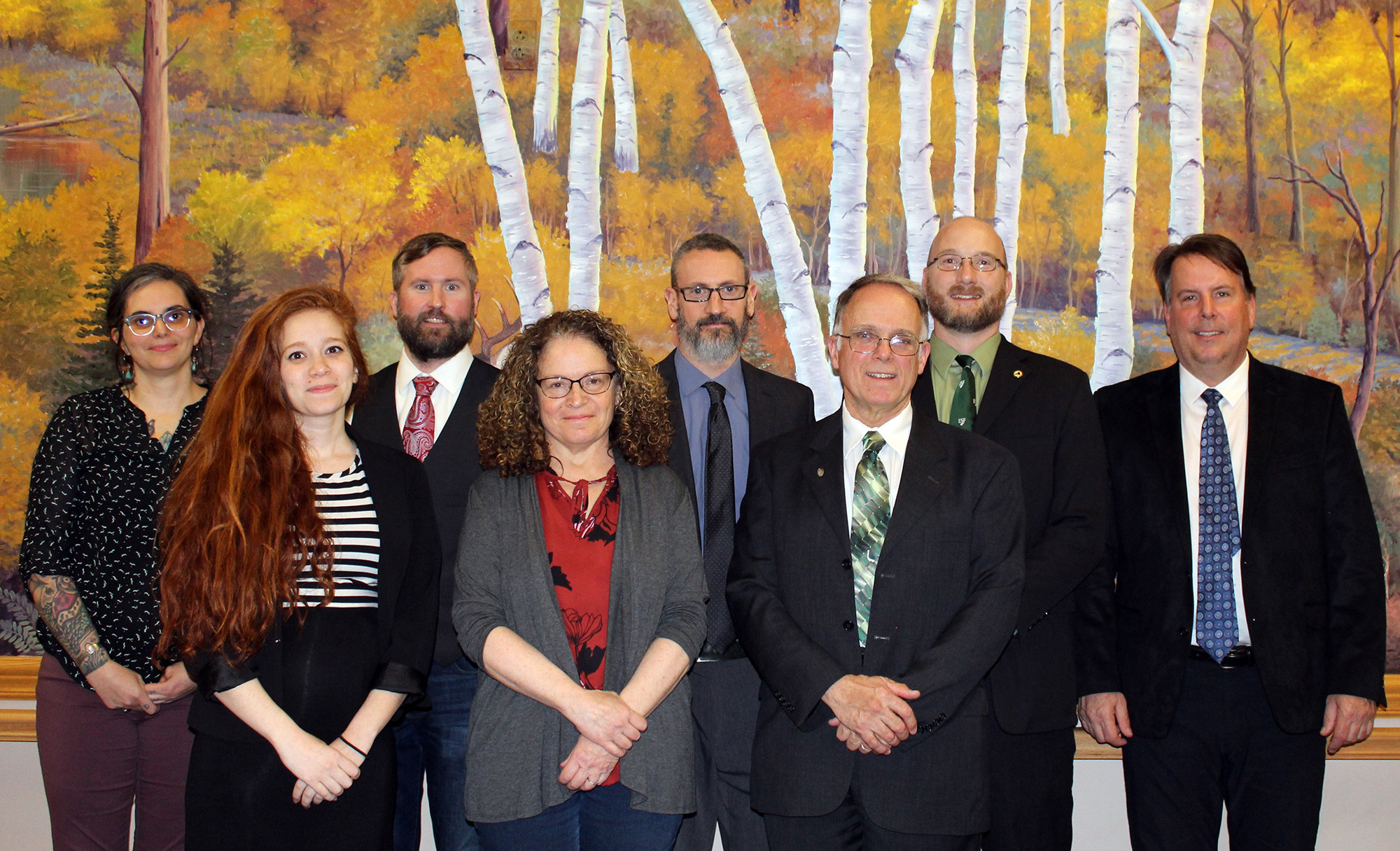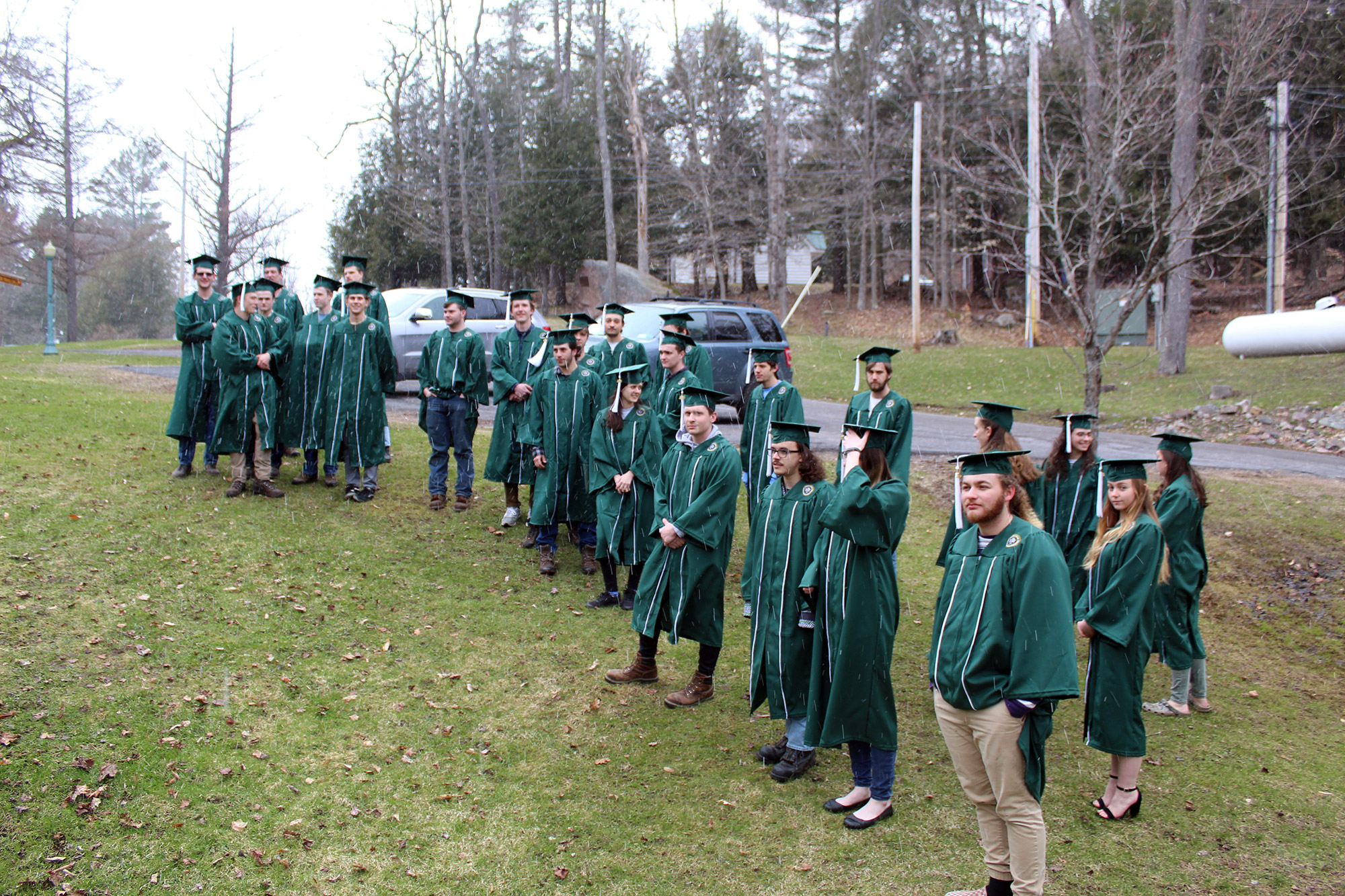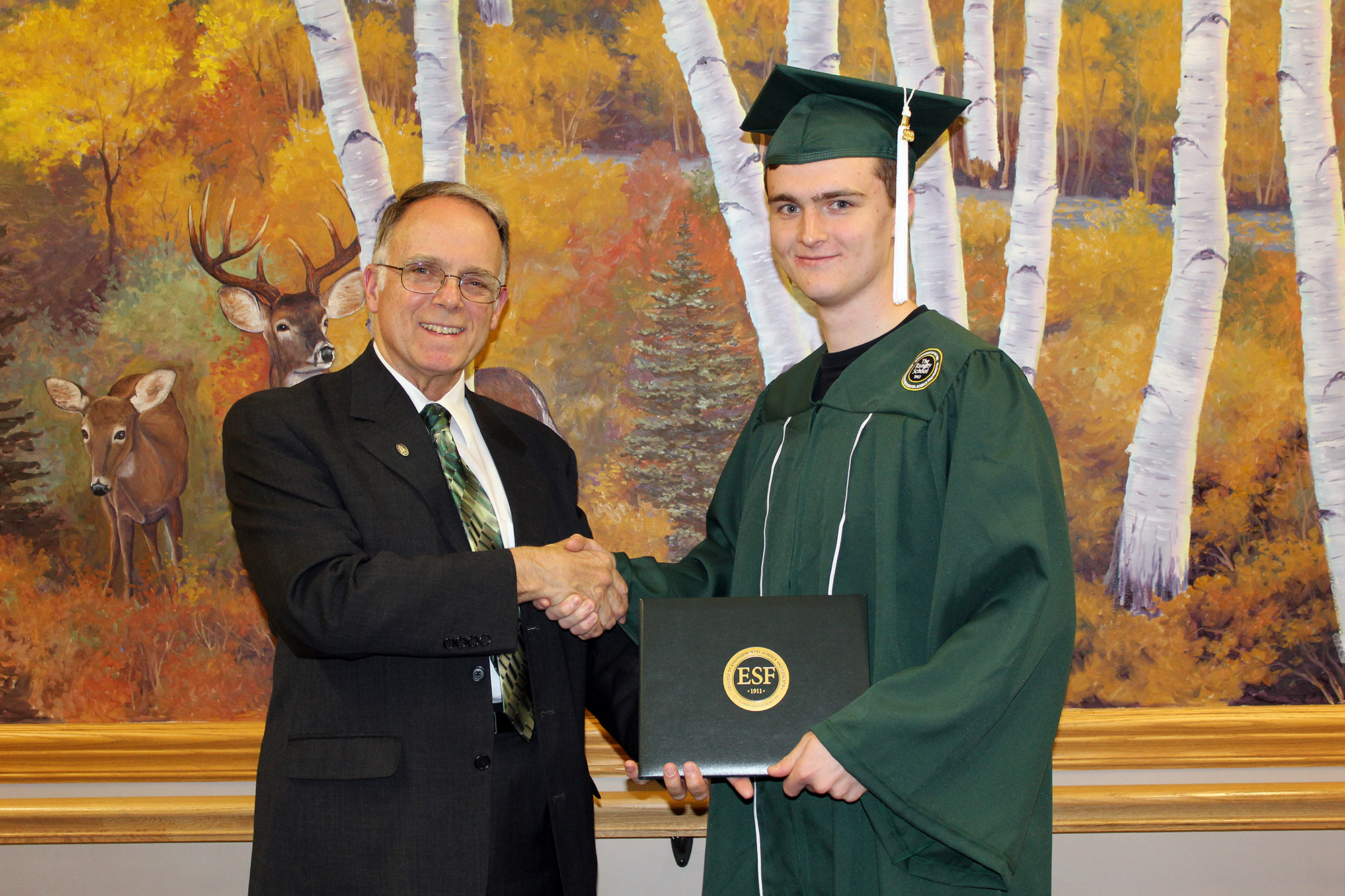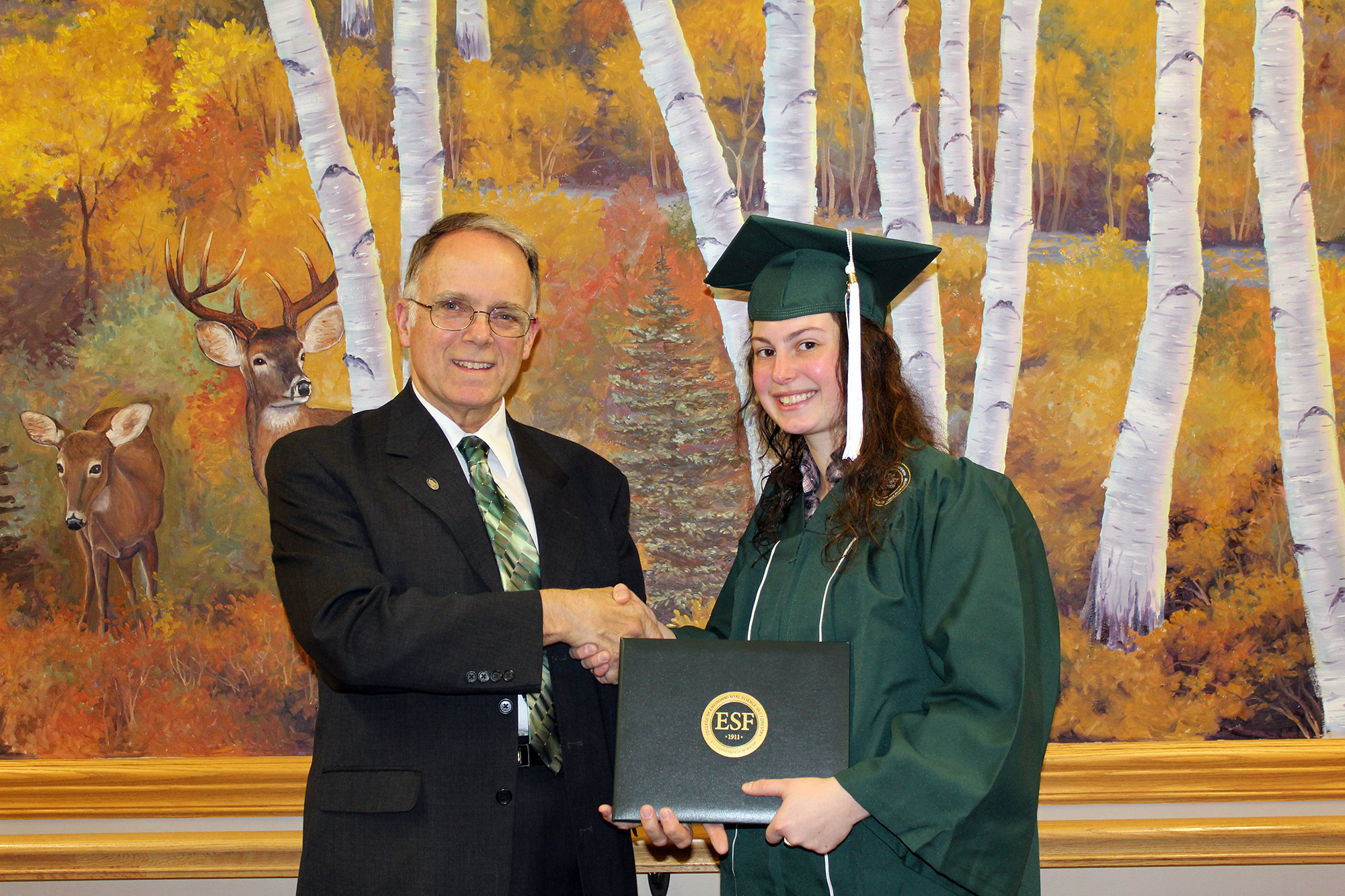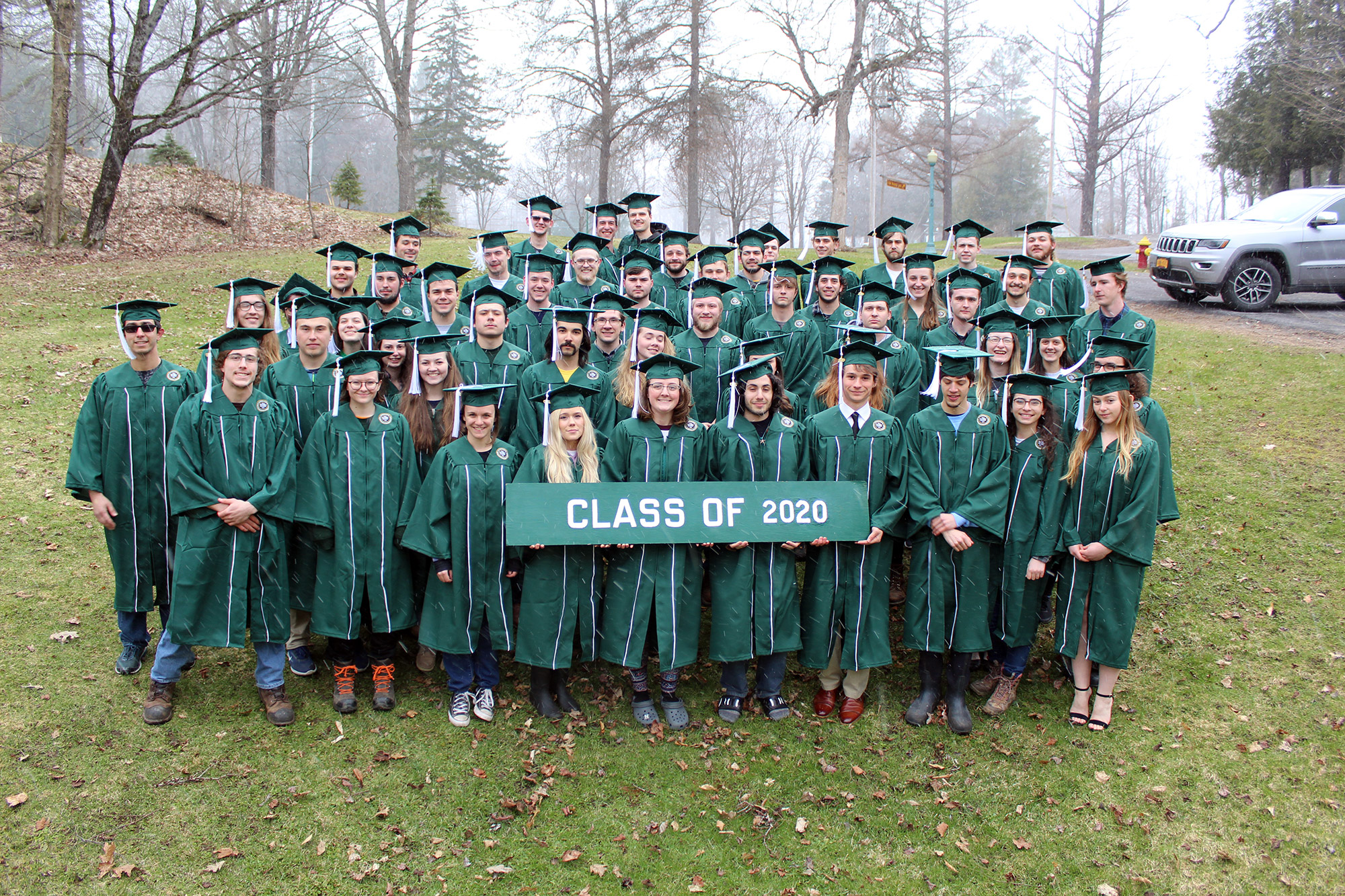A canceled spring break, courses modified mid-semester, Saturday classes, social distancing, technology and dedication. These were the elements that allowed the Ranger School class of 2020 to graduate in-person and together as a class.
When the Coronavirus pandemic resulted in college campuses nationwide sending students home to finish their semester remotely, the faculty and staff at the Ranger School knew their remote location was an advantage that could enable them to finish the semester in person.
Located in Wanakena, New York, the Ranger School’s remote location insulated the campus from the virus that was moving through the country.
“We learned we were going to remain open on March 12,” said Dr. Michael Bridgen, Ranger School director who retired at the end of June.
After learning the Ranger School would remain open, faculty and staff swung into action. “We knew we had to cancel spring break to keep students from bringing the virus back to campus,” said Bridgen.
“When my daughter called to let me know she wouldn’t be coming home for spring break since they were going to try and finish out the semester in isolation, I was actually relieved to hear it,” said Debbie Caviness, mother to Taylor and director of the ESF Alumni Association.
“Not that I didn’t want her to come home,” said Caviness, “but I knew how hard she and her classmates had worked over the past year and I was grateful they would have a chance to finish their degree.”
Bridgen credits the ESF administration with being supportive of the decision to finish the program in person. “All of us agreed the safest option for the students was to stay here, skip spring break and avoid infection,” he said.
Graduation was also moved up in response to the changing news surrounding COVID-19. “We changed the date twice,” he said adding Saturday classes to ensure they would be done by April 17.
“It’s fair to say the staff and students were united in wanting to stay to complete the program,” Bridgen said.
Students and faculty stayed on campus, supplies were delivered and left to be brought in and sanitized. Faculty members took on additional course work to rewrite and teach classes normally taught by visiting instructors.
“The faculty went above and beyond to present the courses,” Bridgen said to fit nine weeks of instruction into five weeks.
Even before he saw how the class responded to the pandemic, Bridgen was impressed with the quality of students at the Ranger School this year. “They were very engaged as a group and supportive of each other,” he said. The group had a large interest in community service with several students earning the Ranger School Service Award given to graduating students in recognition of significant volunteer service. Students volunteered at the Society of American Foresters meeting in February, participated in the Adopt-A-Highway program and the annual lighting of the fire tower, hiking up to Cathedral Rock to illuminate the tower with flashlights for the annual regional event.
For graduate Taylor Caviness the graduation capped off a tough, yet rewarding year at the Ranger School.
“Being able to learn about the forest and the species of trees, especially in Wanakena, was an amazing experience. Although the second semester didn’t go as we had planned by squeezing eight weeks of classes, labs, and major projects into four, to be able to graduate a month early, is a great accomplishment,” she said.
Said Debbie Caviness who watched the ceremony live online, “I thought they did a great job with it. It was really nice that Mike had something to say or a story about all of the students. It felt very personal and it was great to see them get their degree and move the tassel.”
There was still work to be done after the ceremony. The staff had to safely move the students off-campus.
June McWarf, Ranger School program aide, scheduled students at 45-minute intervals to get their belongings out of the dorm and moved off campus safely.
“We couldn’t let families in the building,” said Bridgen, so students would bring their stuff out of the building and meet their parents outside. Thankfully, it didn’t rain on move-out day. “We had luck, planning and dedicated people,” said Bridgen.
The class of 2020 marked Bridgen’s last year at the helm of the Ranger School. Asked how he felt about going out on such a historic year, he said, “I feel really good about it. It was a wonderful class. They really shined at the end. This was a very good class to call my last.”
Karen B. Moore is the senior writer in the Office of Communications and Marketing
Dr. Mariann Garrison-Johnston Named Ranger School Director
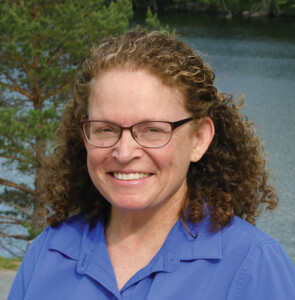
Dr. Mariann Garrison-Johnston
Dr. Mariann Garrison-Johnston was named director of ESF’s Ranger School. She is the first woman to lead the Ranger School.
Garrison-Johnston has been a faculty member at the Ranger School since 2008, coming to the Wanakena, New York, campus because of its commitment to forest technology and its location.
“Our commitment to hands-on training is one of the best in the country,” said Garrison-Johnston. “To care for the health and welfare of our forests, and to understand and make good decisions about how we utilize our resources, we need people who can navigate through the woods, who can identify, measure and monitor everything from trees to water to wildlife. ESF’s Ranger School excels in preparing students for careers in the outdoors through our intensive experiential programs, and I am excited to carry that legacy forward.”
She assumes the position from Dr. Michael Bridgen, who served as director since 2013 and retired in June 2020.
Garrison-Johnston earned her master’s and doctorate degrees from the University of Idaho, and her bachelor’s degree from Colorado State University. Before joining ESF, she was a research scientist with the Intermountain Forestry Cooperative in Idaho, where she performed directed research into regional forest nutrition and health issues in the inland northwestern United States.



